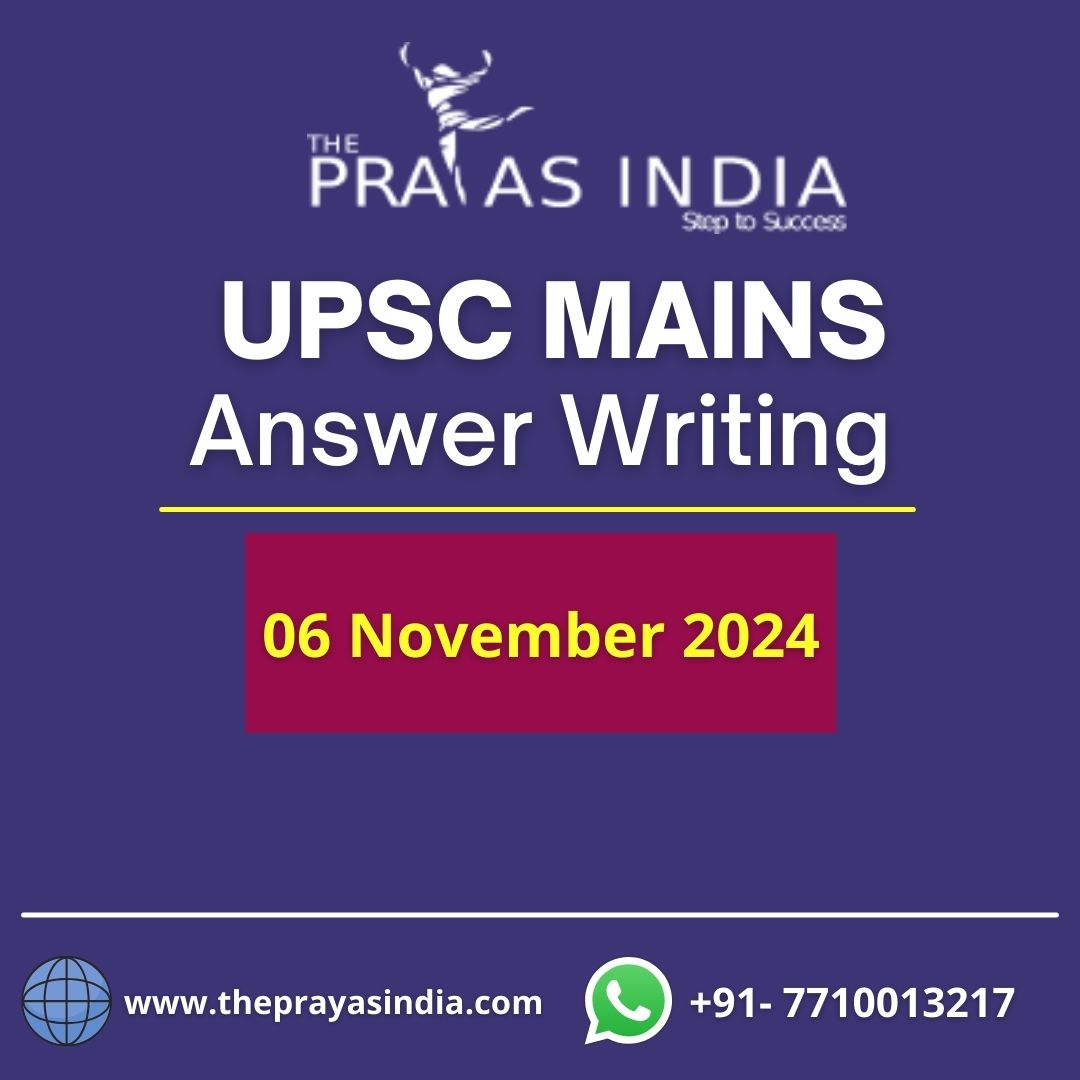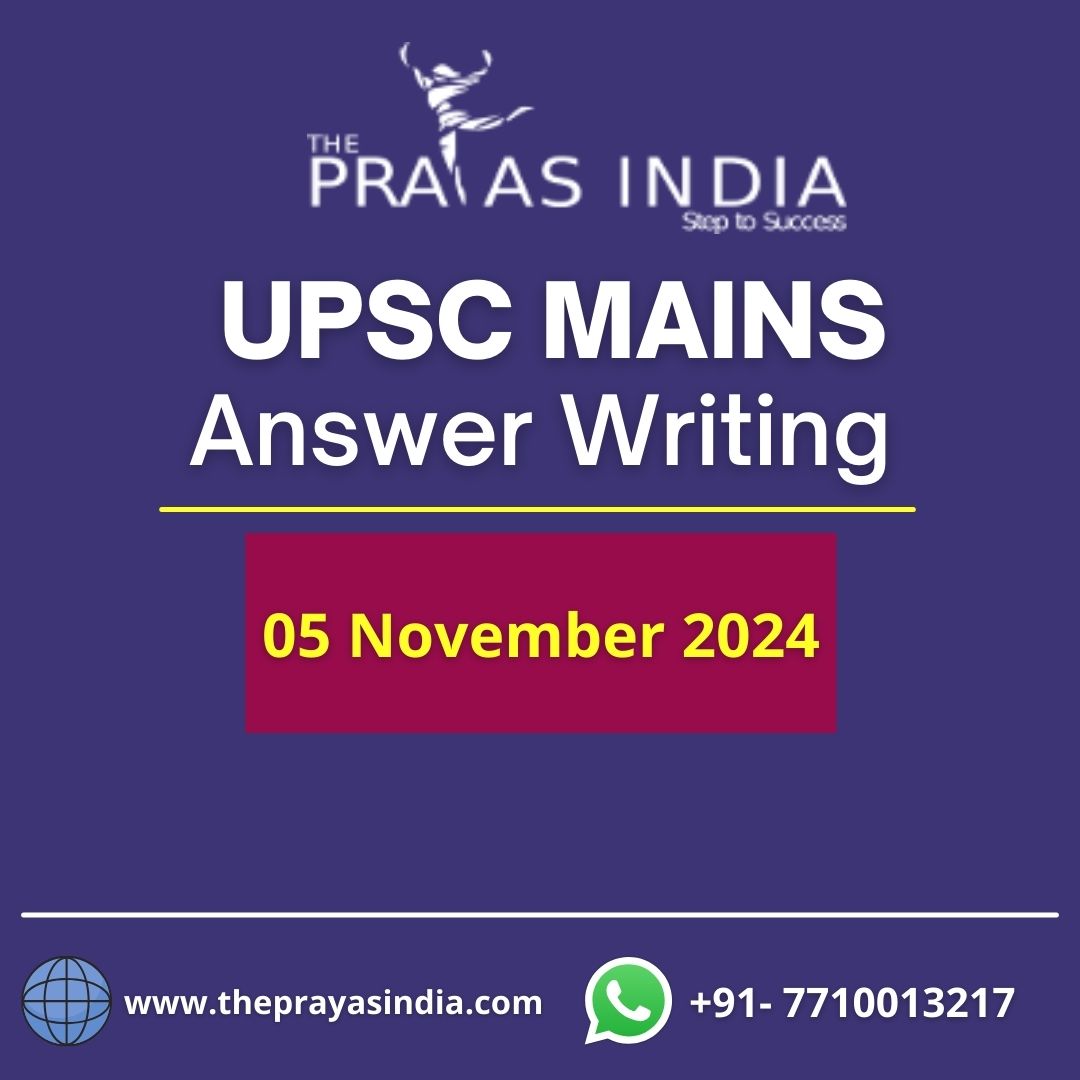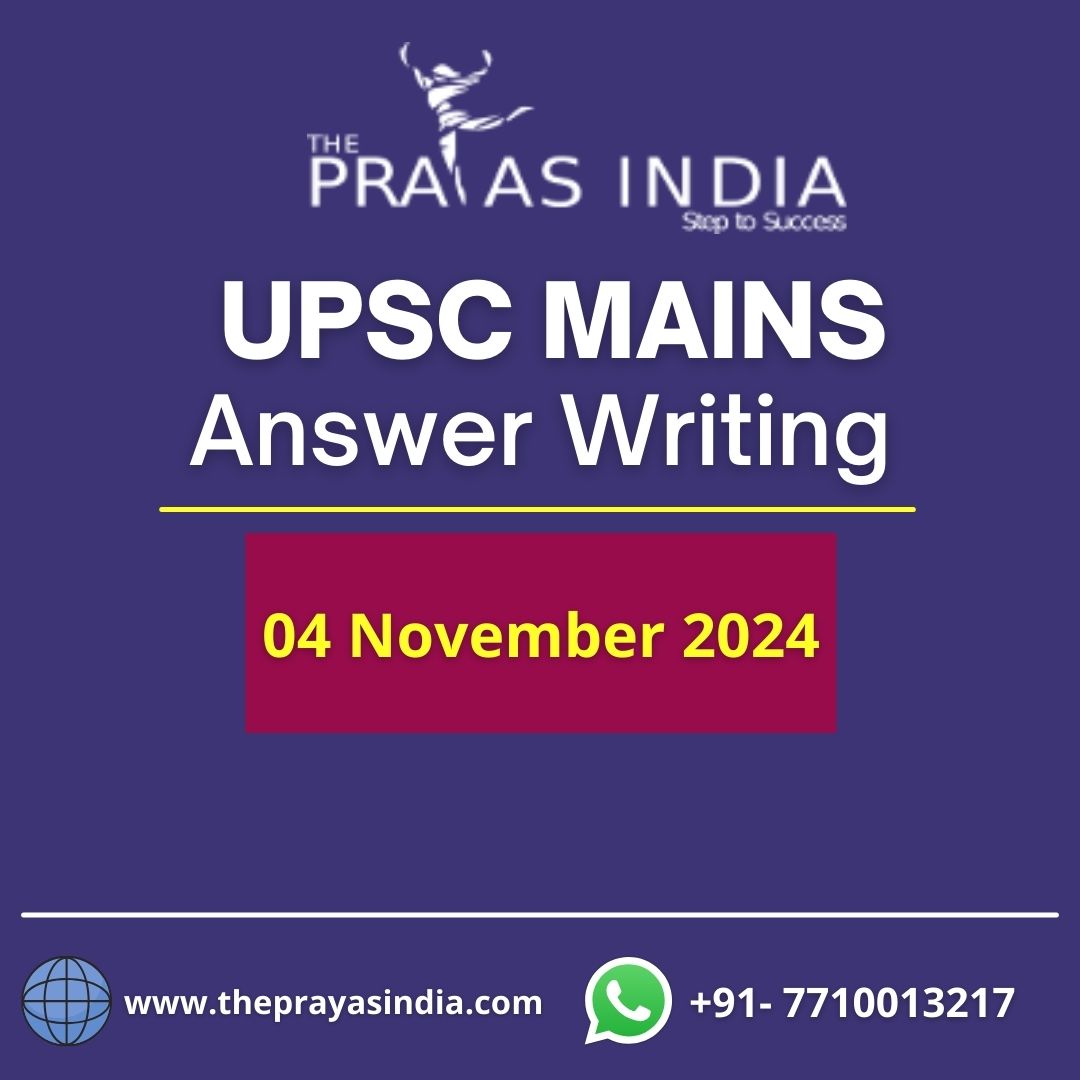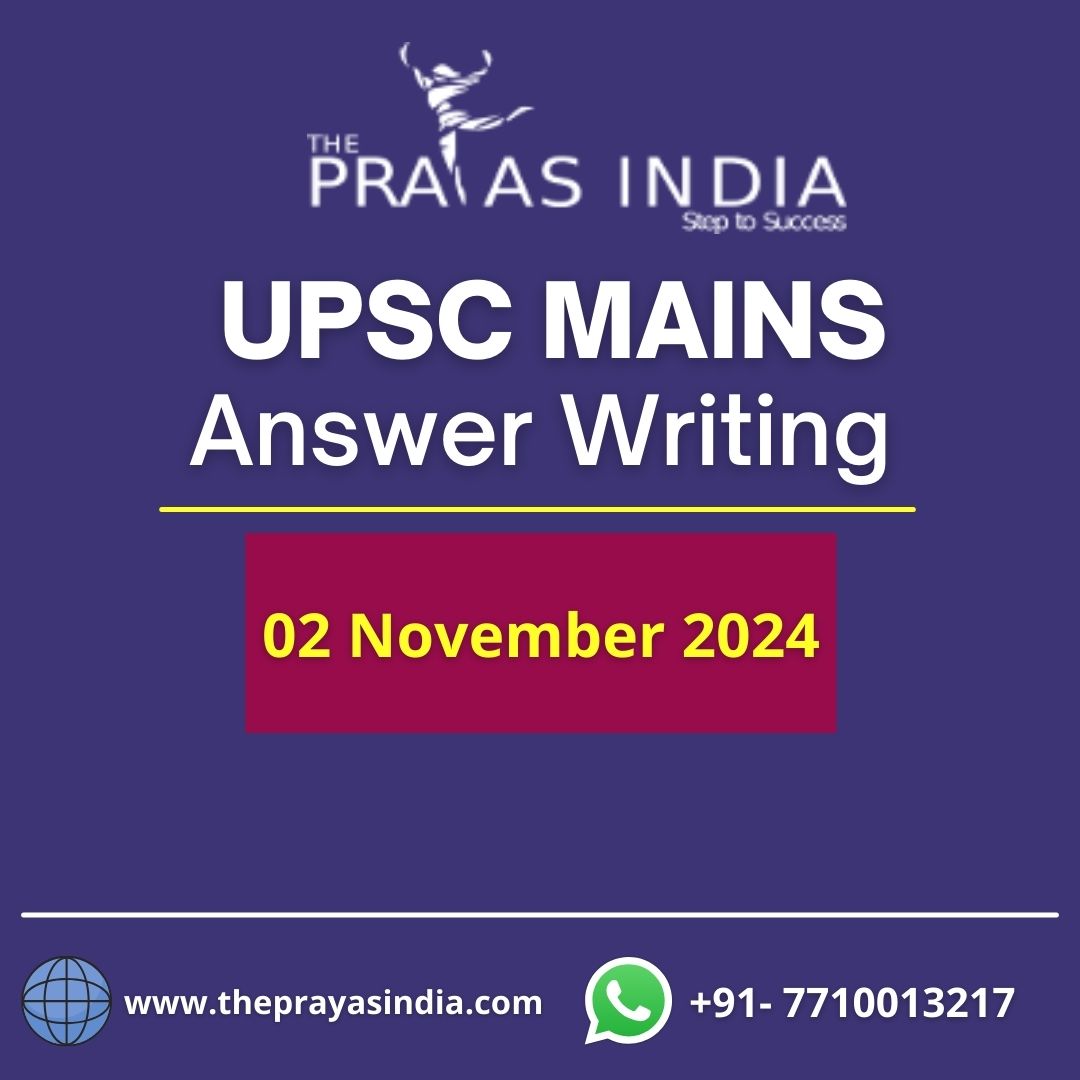MAINS DAILY QUESTIONS & MODEL ANSWERS
Q1. The Indian Constitution is a living constitution that contains enforceable and practical protections for individuals. One important provision, found in Article 32, gives the Supreme Court the authority to issue writs for the protection and enforcement of basic rights. Discuss.
GS II – Indian Constitution-related issues
Introduction:
- Part III of the Constitution, which covers fundamental rights of individuals, contains Article 32. If someone feels that their fundamental rights have been violated or that they should be upheld, they have the option to petition the Supreme Court.
Reasoning behind Article 32, also referred to as the “heart and soul” of the constitution:
- The “Ubi Jus Ibi Remedium” doctrine—which states that where there is a right, there is a remedy—forms the basis for the right to constitutional remedies.
- It empowers Indian people to file a direct appeal with the Supreme Court of India in the event that they believe any of their fundamental rights have been infringed upon. The Supreme Court is designated in Article 32 as the fundamental rights’ defender and guarantor.
- It was determined that Article 32, which states that “it is a right fundamental to all the other Fundamental Rights,” was the best defence available to defend people’ fundamental rights.
- Courts are armed with WRITS, which are constitutional weapons, serving as the legal guardian of basic rights.
- Both the Supreme Court and the High Court are currently executing writs under Articles 32 and 226 regarding the enactment and violation of fundamental rights.
- For the enforcement of any of the rights, either court may issue directives, orders, and writs, such as writs of habeas corpus, mandamus, prohibition, quo warranto, and certiorari.
- However, in order for any other court to serve as a “Protector and guarantor” of these rights, Parliament is free to grant it this kind of authority.
- The Supreme Court’s essential structural theory makes it clear that until the Constitution specifies otherwise, a person’s right to petition the Supreme Court cannot be suspended. This suggests that this right is suspended under article 359 in the event of a national emergency.
- The remedies granted to individuals under the Indian Constitution are among the strongest directives with instantaneous consequences, which is why they have long been regarded as the most significant fundamental right enshrined in the document. Our nation’s Constitution is not inflexible, and its fundamental principles are constantly being called into question by a number of cases and legal actions. Article 32 guarantees the Indian judiciary’s perpetual protection and upholding of people’ fundamental rights. Furthermore, every citizen will have their voice heard and their rights as citizens of a sovereign nation will not be violated.
Q2. Enforcing the Fundamental Duties can have an educational impact on how citizens develop their morals and values. Analyse.
GS II – Constitution related issues
Introduction:
- The Sardar Swaran Singh Committee, established by the Congress Party in 1976, was tasked with formulating suggestions regarding basic responsibilities, the importance of which became apparent during the internal emergency (1975–1977). The committee suggested that a distinct chapter on fundamental duties be added to the Constitution.
- In 1976, the government passed the 42nd Constitutional Amendment Act. The Constitution now has a new section, Part IVA, thanks to this change. This new section solely contains Article 51A, which for the first time outlines a set of ten essential responsibilities for citizens.
The necessity of upholding basic obligations:
- Fills the legal void and makes them mandatory: If the current laws are insufficient to compel citizens to adopt the necessary discipline and behavioural changes, a legislative void must be filled. This may necessitate taking steps like enforcing core tasks.
- In M.C. Mehta v. Union of India, the Supreme Court established mandatory instruction on environmental conservation and enhancement in all national educational institutions as a component of the Fundamental Duty under Article 51-A (g).
- Encourage patriotism: The moral duties of all Indian citizens to support the country’s unity and foster a spirit of patriotism are known as the Fundamental Duties.
- For example, to preserve and safeguard India’s sovereignty, unity, and integrity; to defend the nation and do national service when necessary; and to spread nationalism and foster patriotism in order to preserve India’s unity.
- These basic obligations have become more important since China became a superpower.
- Potential laws such as the Directive Principles of State Policy (DPSP): Occasionally, the DPSP has superseded the Fundamental Rights, and some of its provisions have been incorporated into statute books.
- The fundamental duties imposed on citizens under Article 51-A ought to direct elected and non-elected institutions and organisations of the people, including municipal bodies, in their legislative and executive operations. This includes the elected representatives.
- Allows the judiciary to assess legislative reasonableness: In some cases, the courts have been asked to assess whether a legislative restriction on the enjoyment of a right is reasonable. In these cases, the essential obligations have to be taken into account.
Cons of upholding basic obligations:
- offers a chance to impose political propaganda: Curriculum manipulation is made easier in order to further the interests of vested parties while disguising obligations like as cultural preservation.
- For instance, changing or removing material from the curriculum.
- Redundant when appropriate legislative action is available: For instance, the basic need to preserve and enhance the natural environment, including forests and wildlife, merely restates the provisions of the current environmental protection legislation.
- Ineffectiveness of enforcing the law in the absence of public will and aspirations: Of Article 51A’s 10 clauses, five are positive duties while the remaining five are negative duties.
- The citizens are required to actively carry out these Fundamental Duties by clauses (b), (d), (f), (h), and (j). It is argued that the Fundamental Duties should be left up to the will and will of the people because it is impractical to enforce them.
- Difficulty defining scope: There is no set limit on the extent of fundamental tasks like “to value and preserve the rich heritage of our composite culture.”
- Because of this ambiguity, dishonest people can engage in moral policing.
- An example of a recent vigilante cow lyching.
- It is more appropriate to have voluntary obedience: Creating basic duties could make it easier for citizens to be forced to fulfil their civic duties, but that is not democratic. Gandhiji was always of the opinion that moral persuasion is preferable to coercive adherence.
- Insufficient awareness: It is essential that everyone be aware of the duties in order for them to be properly enforced. This should be accomplished by educating individuals in a methodical and thorough manner, either through schooling or by making it public.
- Incorporating essential duties has contributed to the strengthening of democracy. The moral purpose of fundamental obligations is to create a democratic equilibrium by making people aware of their duties in the same way that they are aware of their rights, rather than to suppress rights. Taking India’s diversity and pluralism into account, provisions should be provided for the implementation of fundamental duties.




